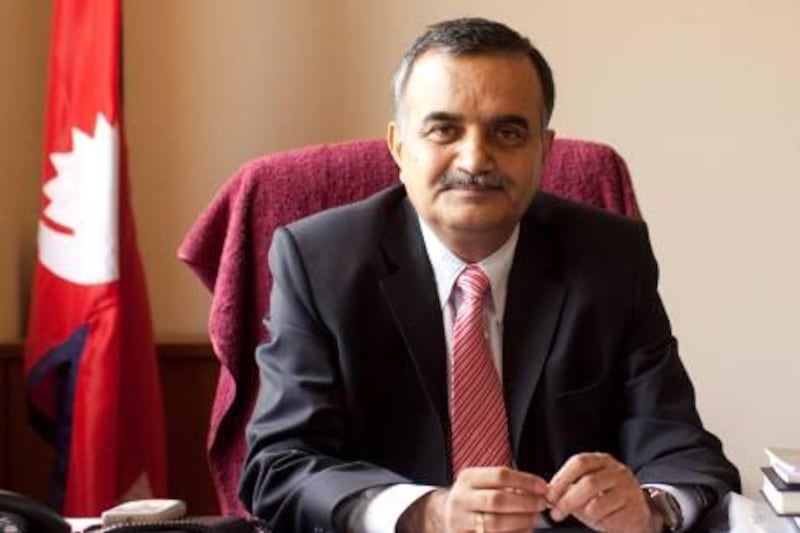ABU DHABI // Nepal is urging the UAE to stop issuing housemaid visas to its female citizens under 30.
The South Asian country banned women younger than this from taking these jobs in the Arabian Gulf in August last year following claims of abuse.
But there is no such ban under UAE law and visas can still be issued.
Many young Nepalese women have reported being lured to the UAE with the false promise of jobs but were abused and illegally hired out for a few thousand dirhams by unscrupulous agents.
The embassy will emphasise its ban in a letter to the Ministry of Foreign Affairs.
“The Nepalese Embassy in Abu Dhabi will reiterate to the Ministry of Foreign Affairs that, if they want to help the government of Nepal, please don’t issue housemaid visas to any Nepalese girl who is below 30,” said the ambassador, Dhananjay Jha.
“The embassy has previously written to the ministry about the matter and it will again reiterate them to mutually resolve our people’s grievances.”
The embassy is also calling for domestic workers to be governed by labour laws rather than come under the protection of the Ministry of Interior.
The move is part of talks between the Nepalese government and all GCC countries over the rights of domestic workers.
“Housemaid affairs are dealt with only by the immigration departments in the UAE, as well as in other GCC and Arab countries, but all labour-sending countries urge labour-receiving countries, particularly in the GCC region, to include domestic workers’ – especially housemaids’ – affairs into the labour laws,” Mr Jha said.
“We want the provisions of the ILO [International Labour Organisation] to be implemented on housemaids.
“I have raised the issue with the director general of the UAE Foreign Ministry and also raised the issue in Colombo Process [a management of overseas employment organisation in Asia] that housemaid matters should come under the labour laws.
“The major labour-sending countries are telling the GCC countries that any domestic workers, male or female, should come under labour laws.”
There are about 160,000 Nepali citizens working in the UAE, many of them housemaids.
The embassy repatriates between 90 and 100 women a year and is currently sheltering 11 housemaids.
Each of them, aged between 19 and 26, came to their sponsor through unscrupulous agents, who had been paid illegal fees of between Dh7,000 and Dh9,000. The women were paid between Dh500 and Dh900 a month.
They are recruited as cleaners by agents for immigration purposes and to avoid the age rules. But the visa applied for in the UAE is that of a housemaid.
Once in the country, the girls are sold to the highest bidder, and some sponsors are abusive.
Mr Jha said it was practically a full-time job for an embassy official to visit police stations and immigration departments to help victims.
“They [the girls at the embassy] were mistreated, denied wages, overworked, had inappropriate language directed at them, sexually harassed, then fled from the clutches and sheltered at the mission to get repatriated,” Mr Jha said.
He cited the example of two “very beautiful” young ladies, who had to be repatriated after their sponsor started harassing them for sex.
Another maid was sent home after her hands were burnt with cigarette butts. Mr Jha stressed that his government had cracked down on agents in their country. Rules had also been tightened for workers going overseas to be cleaners.
The introduction of the housemaid age restrictions last year came 18 months after the Nepalese government had to end a 12-year ban on women working in Arabian Gulf countries over human rights issues.
The ban had been in place after a young, abused woman committed suicide in Kuwait, sparking outrage in Nepal.
anwar@thenational.ae






